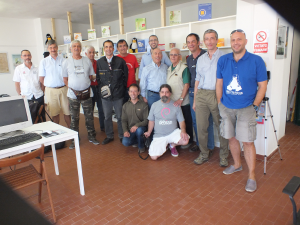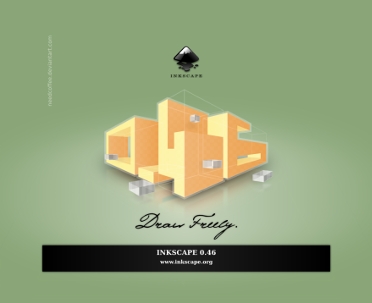
It's more or less four months since I proposed to
resurrect our
newsletter. We already released eight issues of the
Debian Project
News and work for the ninth issue has already started. So I guess it's
time for a small "state of the DPN" speech, but since I'm not attending
DebConf, you will have to read this mail instead ;)
After having a rough start (and in fact missing some self-set deadlines
and completely underestimating how much work is involved in such a kind
of newsletter) we finally developed a - more or less - working flow of
work (Which is by the way documented
here).
Speaking of the current state sadly means to confess, that our hopes to
draw a lot of help from the community by using a system for drafting the
news with a low entry barrier were not fulfilled. We actually had a
good start, with good participation, but due to (I assume) the
aforementioned initial difficulties participation in the creation of the
DPN dropped considerably. Currently the workload of creating our
bi-weekly newsletter is shared by only two people (that being Meike
Reichle and myself), which is barely enough :(
While we at least get a hint from time to time, what we should mention
in the next issue, it rarely happens, that someone contributes by
drafting a text -- which is the real work. (At this point a
BIG "Thank
You" to those who did! (See list bellow.) It's much
appreciated!)
We suffer especially, since although we are a two people team, we have
in fact no redundancy, since real live issues affecting one of us will
most likely affect the other one, too.
Therefore we mostly concentrated our work on creating the next issues
and getting them out in time, and didn't have time to answer all mails
considering suggestions for changes and improvements (yet?). We are
sorry, but at least we tried to read them briefly and keep them in mind
when drafting the next issue. As a result of this we re-added the list
of DSAs, WNPP and new and noteworthy packages due to popular demand.
There are still a lot of unanswered mails not dealing with content, but
with workflow issues / proposals (including changing from
wiki.debian.org to a special ikiwiki instance). We are sorry, that we
couldn't yet act on them and take appropriate measures, but be assured,
they are not forgotten.
Other issues the DPN currently have are "unwritten guidelines" regarding
editorial choices of DSAs to be published and which packages to list in
the "new and noteworthy package" section. Both is more or less done by
our gut feeling.
Speaking of problems the DPN are facing, we also need to mention
translations of the DPN. The current workflow makes it difficult for
translators of the DPN, since we often fail to get the final draft of
the DPN ready in time to give translators a "head start" so the
translated DPNs can be released together with (or at least with a as
small as possible delay to) the English DPN.
So here is a big call for help! We really need your help writing the
DPN. (Monitoring lists and newstickers we don't monitor ourselves would
be nice, too, but only add more work to us if you only give us
pointers.)
We will both be very busy with our real live the upcoming month, and are
not sure how much time we can dedicate to the DPN. So please help us!
The current draft for the next issue of the DPN is always available
here .
There should already be a todo list with pointers to interesting
topics, which need to be written out. Some guidelines about style and
content are available
here.
Last but not least, we would like to thank the following people who have
contributed to the DPN so far:
- Adrian von Bidder
- Ana Guerrero
- Andre Felipe Machado
- Bjoern Boschman
- Graham Cobb
- Jeff Richards
- J rg Jaspert
- Jon Evans
- Julian Andres Klode
- Justin Rye
- Luca Bruno
- Martin F. Krafft
- Paul van der Vlis
- Paul Wise
- Raphael Hertzog
- Russell Coker
- Sebastian
- Stefano Zacchiroli
- Thomas Lange
- Wouter Verhelst
(Unfortunately we can't list those people, who contributed by
translating the DPN, nor do we have a complete list of the native
English speakers, who helped by proofreading. But we thank them
nonetheless!)
 Right now, in many parts of the world, people are celebrating the Software Freedom Day 2012. The Debian project as well is participating to some of these events with talks, demos and partying.
In particular, you can find our project members actively involved in different locations and activies, among which:
Brazil Novo Hamburgo, RS
Right now, in many parts of the world, people are celebrating the Software Freedom Day 2012. The Debian project as well is participating to some of these events with talks, demos and partying.
In particular, you can find our project members actively involved in different locations and activies, among which:
Brazil Novo Hamburgo, RS


 After skipping 3 entire releases, and 18 months later, here we are, finally:
After skipping 3 entire releases, and 18 months later, here we are, finally:  As a standalone browser, it may look quite similar to
As a standalone browser, it may look quite similar to 




 It's more or less four months since I proposed to
It's more or less four months since I proposed to



